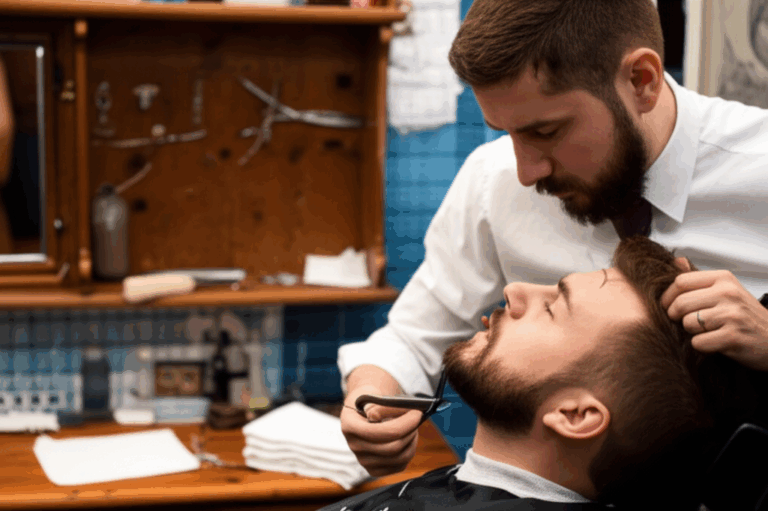
Can a Dentist Pull a Tooth Without Permission? My Experience, Insights, and What Every Patient Needs to Know
Table of Contents
- Competence, Disclosure, Understanding, and Voluntariness
- Written, Verbal, and Implied Consent: What’s Legitimate?
- Consent by Proxy: Children and Incapacitated Adults
- The Doctrine of Necessity in Life-Threatening Dental Emergencies
- Complications Mid-Procedure: Do Dentists Ever Have Discretion?
- Step 1: Communicate and Gather Your Records
- Step 2: File Formal Complaints
- Step 3: Legal Options—Malpractice and Medical Battery
Introduction: Why Consent Matters in Dental Care
I still remember the mix of nerves and trust I felt every time I sat in the dentist’s chair. Over time, I’ve had everything from simple cleanings to the random tooth pulled out. And I learned something important: my permission is not just some paperwork—it’s my protection.
Maybe you’re here because you’re worried about something coming up, or maybe something already happened and you’re upset. Either way, you want a simple answer: Can a dentist take out a tooth without your permission?
Let me say it clear—Never, unless it’s a true emergency. Your permission is the most important part of good dental care. It’s your right. Knowing how this works can help you keep yourself safe and make smart choices.
Let’s go over what I figured out, what the rules and dentist’s code really say, and how you can stand up for yourself if something goes wrong.
What Informed Consent Really Means in Dentistry
When I first started caring about my dental health, everyone talked about “informed consent.” But nobody really explained it to me until, funny enough, I asked a lot of questions just before a tooth was supposed to be pulled. Here’s what I learned the hard way.
Competence, Disclosure, Understanding, and Voluntariness
Good permission isn’t just a signature on some paper. It means four things:
1. Competence: You need to be able to make choices. If you’re awake and think clearly, you’re in charge.
2. Disclosure: Your dentist has to tell you everything—what will happen, the bad stuff that could happen (like nerve problems or dry socket), the good stuff, other ways to do it (some teeth can be saved with fillings or root canals instead), and how much it will cost. One time, my dentist explained root canal and extraction in simple words, and I felt more sure about saying yes.
3. Understanding: You need to actually understand, not just hear it. I ask as many questions as I want. If you don’t “get it,” ask them to go over it again.
4. Voluntariness: No pressure, no saying you’re being difficult, nobody rushing you. The best dentists I met always stopped and gave me a minute to think.
Written, Verbal, and Implied Consent: What’s Legitimate?
There’s a few ways you can say yes. Here’s how it works:
- Written Consent: For big stuff like pulling teeth, your signature on a permission paper is the safest thing.
- Verbal Consent: Just saying “Okay, I understand and agree” after talking about it can be enough for small stuff, but most dentists will still have papers for things like extractions.
- Implied Consent: Just showing up or sitting in the chair does not mean you’re giving the okay for a tooth to be pulled. One time I said, “I’m just here for a cleaning,” and the staff marked it in my file—don’t ever let them assume.
Consent by Proxy: Children and Incapacitated Adults
For kids or people who can’t decide for themselves, the parent or legal guardian signs. When my nephew needed a baby tooth pulled, my sister had to sign for him. Same for adults who aren’t able to make choices—whoever has power of attorney or is their legal guardian says yes or no.
Rare Exceptions: When Consent Isn’t Required
The rules are tough, but in all medicine, there’s a few rare exceptions. These aren’t shortcuts—they’re only for emergencies.
The Doctrine of Necessity in Life-Threatening Dental Emergencies
If someone is passed out with a really bad infection, and waiting to get permission could be deadly, then the doctors and dentists can act right away. One time, I was with a family member in the ER with a swollen face—the doctors didn’t wait for forms, they just helped.
This is called “implied consent in emergencies.” The law says the dentist can act without getting your answer, but only to save your life or keep you from getting much worse. The moment things get better, they stop and try to talk to you or the person in charge. If my loved one had woken up, they’d have stopped and checked again.
Complications Mid-Procedure: Do Dentists Ever Have Discretion?
What if you say yes to a filling, but then the dentist sees the tooth is too far gone and pulls it out without asking? From what I found out, and from my own life, this comes up a lot. If you are awake and can talk, the dentist has to stop and ask before doing anything else.
One time, I was there for a filling, but it got complicated. The dentist thought the tooth might be cracked, but he stopped, told me, and waited until I said it was okay to pull it. That’s what is supposed to happen—not just because of rules, but because it’s the right thing to do.
The only fuzzy area is if you’re under heavy medicine or asleep, and something surprising comes up that’s dangerous. Even then, the dentist should only do what’s needed to keep you safe. Afterwards, everything else has to wait until you’re awake and can decide.
If a Dentist Pulled a Tooth Without Your Permission: What I Did—and What You Can Do
Imagine waking up after the dentist and you realize a tooth is missing that you never agreed to lose. I know this feeling, I helped someone in my family through this once. It shakes you up and makes you wonder if you can do anything about it. Here’s the path we took.
Step 1: Communicate and Gather Your Records
First, don’t freak out—get the facts. We talked right to the dentist and manager, calmly asking, “Can you explain what happened?” Sometimes, it’s a mix-up and the office can talk it out or even say sorry, but you should always get:
- A full copy of your dental files and any forms you signed.
- A second opinion from a different dentist—someone with no reason to take sides.
- A written note if things don’t make sense to you.
Step 2: File Formal Complaints
If you feel you aren’t getting anywhere, every state or country has boards that watch over dentists—like the State Dental Board in the U.S. or General Dental Council in the U.K. There are clear ways to file a complaint. Patient help groups or ombudsmen can also step in.
With my family member, we wrote down what she remembered, what the papers said, and what didn’t match. The board took those problems seriously.
Step 3: Legal Options—Malpractice and Medical Battery
If it’s more than just poor communication—if you got hurt or lost a healthy tooth—you can look at dental malpractice or even medical battery. Battery in law just means “touching without permission.” The dentist doesn’t have to want to hurt you; acting without your okay (especially for something you can’t undo) could be breaking the law.
Talk to a lawyer who knows medical or dental law. They’ll want to see your papers, your timeline of what happened, and any emails or forms.
Empowering Yourself: Ensuring Your Consent Is Always Respected
For myself and people I care about, I do a few things to stay in control:
The best dentists are happy to have this conversation. They see you as a partner, not a problem.
If you’re getting things like crowns or veneers, know the good crown and bridge labs or veneer labs care about clear talk between everyone. Always make sure your dentist uses people and materials you trust.
Case Studies, Data, and What the Evidence Shows
My tips come from real life, but I checked into the facts too—because numbers matter.
Consent Problems Are Behind Many Lawsuits
Did you know, not getting a clear “yes” from the patient is behind 5–15% of all dentist lawsuits? Not failed root canals or bad implants, but just dentists not making sure you, or your parent or guardian, said yes.
Wrong Tooth, Wrong Site—Still a Consent Issue
Sounds wild, but the wrong tooth gets pulled in about one out of every 100,000–200,000 times. Turns out, this often happens because someone didn’t check permission and the plan before they started.
Disciplinary Actions Are Serious
Dentist boards—who give dentists their licenses—don’t just let this slide. Pulling a tooth without the correct okay can mean fines, losing pay, or even losing their job.
Lawsuits Center Around Battery, Not Just Negligence
Courts can treat doing dental work you didn’t say yes to as battery—same as physical assault. Even if your dentist thought they were doing what’s best, it’s your right to say yes or no first.
For those thinking about new technology or digital options, using a good digital dental lab or China dental lab can add extra safety—since your dentist must tell the lab exactly what to make, and you can ask to see the plan before anything permanent happens.
The Emotional Fallout
I’ve seen what it does to someone when they feel powerless in the dentist’s chair—stress, anger, even new fears of dentists forever. This is why there are strong rules about permission. It’s not just your teeth; it’s your sense of safety too.
Conclusion: Your Right to Decide—and How to Protect It
If you remember one thing, let it be this: Your yes or no is not just a step—it’s what safe, fair, and worry-free dentist visits are built on. A dentist should never, ever pull your tooth without your real okay, unless you’re in deep trouble and can’t answer.
Keep in mind:
- Read, ask, double-check, and bring a friend.
- Stand up for yourself and complain or think about legal help if you’re wronged.
- Get second opinions, especially before anything that can’t be undone.
- For all dental work, even with things from dental ceramics labs and digital systems, ask for clear talk and signed promises.
Feeling safe with your dentist starts with trusting yourself. Make sure your “yes” really means yes… and no one should ever guess it for you.
Thanks for reading. If you have more questions or are in a tough situation with permission, you’re not alone. Stand up for yourself, and never be shy to take charge of your own dental care.








